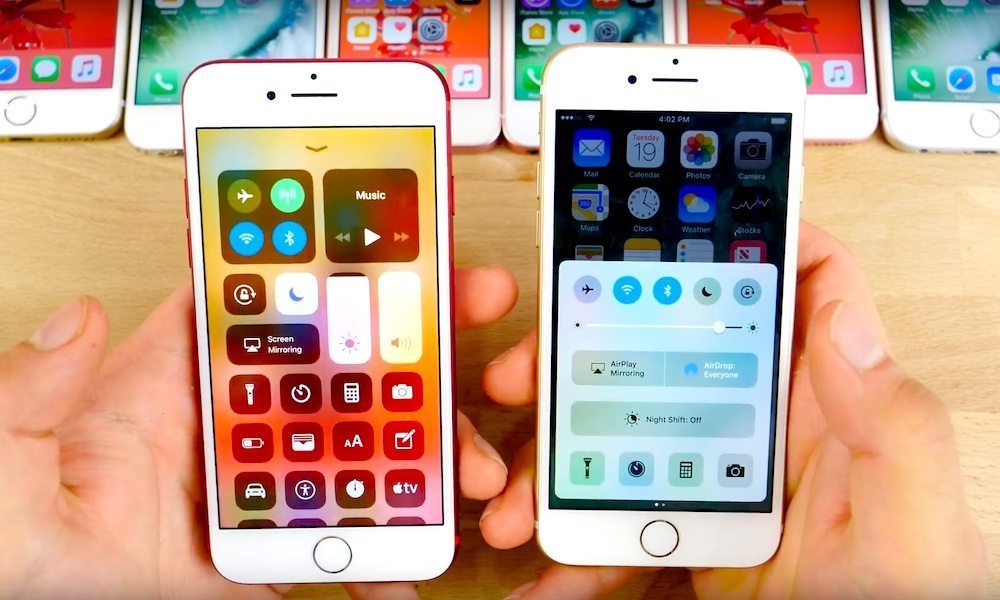Does Apple Make Older iPhones Slow Intentionally?

Toggle Dark Mode
If you’ve been an iPhone user for a while, you’ve probably noticed that older phones tend to degrade over time. For many, this is just the natural cycle of consumer electronics. For others, however, it’s the result of a long-standing conspiracy meant to get people to buy new devices when they don’t need them.
The Background
Apple, these theorists contend, deliberately sabotages older devices via software updates to incentivize consumers to buy the latest iPhone. This phenomenon is known as planned obsolescence, and many believe that it’s a sinister and malicious business strategy meant to keep a company’s coffers full of customer cash.
Of course, there’s no arguing with the fact that older devices get slower over time — and in many cases, eventually become obsolete. But is there any truth to the theory that it is an intentional decision?
One Dubious “Study”
Many of these theorists point toward one “Harvard study” that, ostensibly, proves that Apple does indeed kill its older devices. Before we move on to what’s actually happening, let’s get this “study” out of the way.
Firstly, it’s not a Harvard study. It appears to be a casual experiment performed via Google Trends by a Harvard student named Laura Trucco— and more than that, it doesn’t prove that Apple is sabotaging its devices at all.
The only thing that the “study” proved is that worldwide searches for “iPhone slow” tend to spike whenever a new iPhone is launched. Of course, that’s just a passing correlation and hardly concrete evidence of intentional sabotage. Furthermore, while the “study” states that there isn’t a similar trend for Samsung Galaxy devices, this can be explained, too (though we’ll get to that later).
The Facts: Speed Testing
While benchmark testing sites like Geekbench and AnTuTu don’t test for various operating systems, a variety of other sources have tested iOS 11 on older devices.
YouTube channel EverythingApplePro performed a speed test comparing iOS 11 to iOS 10.3.3 on various iPhone models and found that — in most cases — iOS 11 did result in a nominal decrease in speed. Similarly, ARS Technica conducted benchmark testing on an iPhone 5s running iOS 11 and found similar results. There was a noticeable decrease in speed, though not significant.
A slight speed hit doesn’t exactly sound like “sabotage,” but older devices do get slower on newer and better software. So what’s going on?
First-Party Software & Hardware
Apple, unlike Android, designs both its own hardware and its own software. Because of that, the company has a very specific target to design their software around. Apple obviously creates and optimizes a new version of iOS to work best with its latest and greatest devices. It wouldn’t make any sense to do otherwise.
While many older devices are supported by newer software, some devices do go obsolete. The iPhone 5, for example, is a 32-bit phone and incompatible with new 64-bit versions of iOS. But, again, Apple can’t just keep iOS 32-bit in order to appease owners of older devices — it would just become stagnant.
That’s also the reason why “slow phone” Google searches don’t spike for Samsung devices. Android isn’t made by Samsung, and the release of new Android software often doesn’t coincide with new Samsung hardware. Similarly, when developing a new version of Android, the OS’s makers have to account for a broader range of devices than Apple does.
The Conclusion
Apple is creating its software to keep up with its advancements in hardware — and technology overall. That’s hardly “intentional sabotage” of older devices, even if it does result in aging handsets becoming obsolete.
The simple fact of the matter is that newer versions of iOS (really, all operating systems), with their increased load of features and capabilities, require better processors and internal specifications to run properly. With the pace of technological advancement in our modern age, there’s no wonder why older phones get slower as time goes on. The technology that manufacturers install in these devices gets old very quickly, since it doesn’t take long for technology to improve.
Aging devices just can’t keep up, even if they were the latest and greatest when they were released. That’s just the cycle of technology — particularly when it’s advancing so rapidly.
But There’s A Caveat, Of Course
That all being said, there’s is some planned obsolescence going on. But it’s a trend across the entire consumer industry, not just at Cupertino. And it has its roots hundreds of years ago. As an example, there’s a lightbulb that’s been on continuously for nearly 116 years. Contrast that to modern lightbulbs that last just a few years.
But as the BBC points out, planned obsolescence of consumer products allows for businesses to be sustainable. And it allows these companies to keep up with the tastes and desires of their customers. “In this way, planned obsolescence serves as a reflection of a ravenous, consumer culture.”
While greedy industries of yesteryear may have come up with this business model, “they were hardly alone in doing so.” And the rapid pace of obsolescence in technology has created hundreds of thousands of jobs and allowed the industry to flourish and advance at a breakneck pace.
In short, Apple isn’t intentionally sabotaging its older phones — at least, no more than literally any other company is sabotaging their own products.






